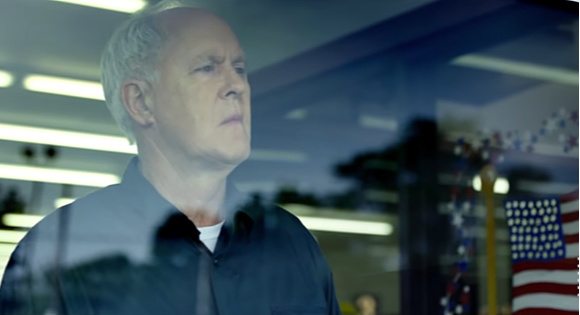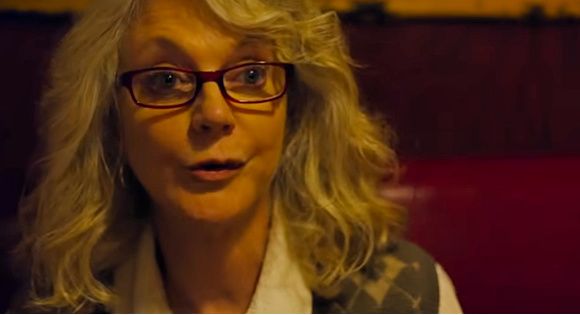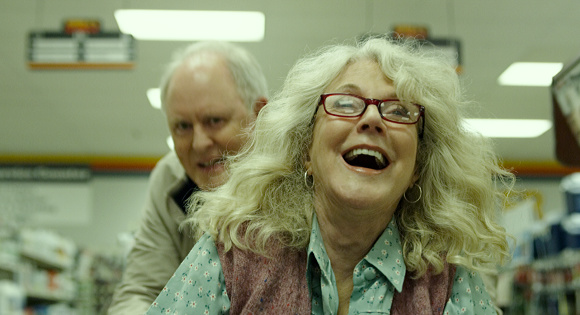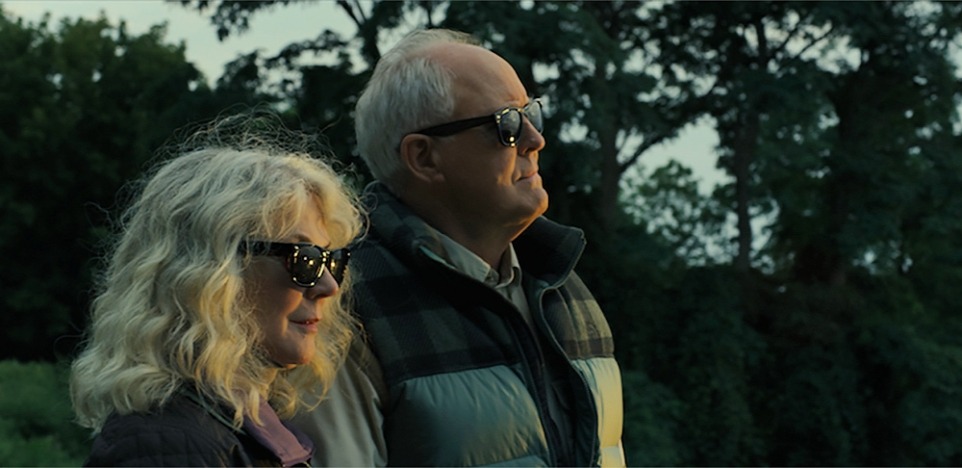An of-the-moment mixture of melancholy and doom hangs over the eccentric whimsy of director Noble Jones’ The Tomorrow Man. This makes for a strange concoction that wavers on the verge of feeling a bit too mannered. But it still somehow manages to compel with two central performances that plumb the depths of what it means to seek connection in an alienated world that just might explode in a big bang or peter out in a quiet, extended whimper.

Ed Hemsler (John Lithgow) is a familiar type, a conspiracy-spouting, apocalypse-theorizing, lonely, aging, white man. He pours money, resources, and energy into a hidden and locked disaster shelter, where he feels more at home among its shelves of perfectly arranged food and supplies than he does in his own house. His relationship with his son (Derek Cecil) is strained, so he spends his free time arguing with the television news anchor from his recliner or conversing with an online doomsday forum from his desk chair.
Ronnie Meisner (Blythe Danner) is another familiar type, a mumbling, stooped, lonely, aging, white woman. She fills her house with memorabilia, knick-knacks, and unnecessary junk, where the stuff surrounding her protects her from past pain and current disappointment like a crusty shield. She’s trying to bury secrets, so she spends her time and money piling more and more on, hoping for a miraculous deliverance from her inner hurt by drowning it in a sea of outer waste.

That these two meet and embark on a surprising, if tentative, romance could wind up feeling be a bit too twee, but Noble seems to have a bigger agenda here. He uses the push-me-pull-you balancing act of their relationship to mine the different ways United States society is dealing with an overwhelming sense of dread, grief, and loss. This aim isn’t always successful from scene to scene, but as a whole, the film manages to leave a trail of meaningful questions in its wake, inviting audiences to ponder what spiritual connection might mean in a time when an impending nihilism threatens to send everyone to the seductive safety of their private silos.
What develops between Ed and Ronnie moves effectively, both because Lithgow and Danner are such affecting actors, but also because these characters’ quirks don’t seem put on or merely manufactured. The fears and failings of both are grounded in the real conundrums of not only older people, but of everyone: What’s life for, giving in to your worst imaginings that may never come, or giving in to the miracles and possibilities that are beckoning in plain sight every day? Is connection worth the trouble when it could all end in darkness tomorrow, or is the point of connection simply to make today a bit brighter?

Where the relationship and the film end up, after some troubling plot developments, including an explosive family Thanksgiving dinner, a medical scare, and several breakups, seems both impossible and inevitable. The final scene will probably divide audiences with its audacity and opacity, but it is also true to everything that has come before. It leaves the characters in a moment of both bitter irony and sweet bonding that lingers and haunts and leaves us with another quietly detonative question: If we were to get rid of all that we think protects us, where would our new vulnerability take us, to the end of the world or to a new beginning? The Tomorrow Man coyly refuses to offer a convenient answer, but its characters’ journeys suggest that reaching out for others just might be better than disappearing into the lonely mess of your own life.
